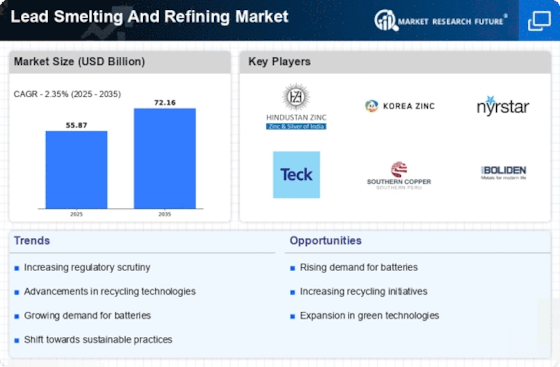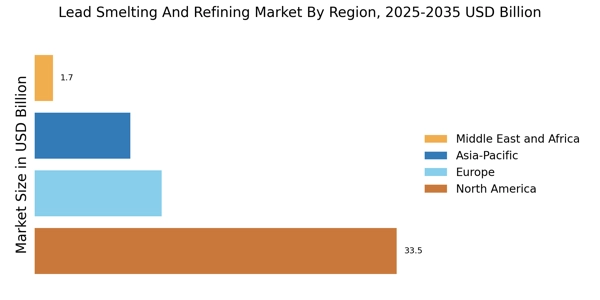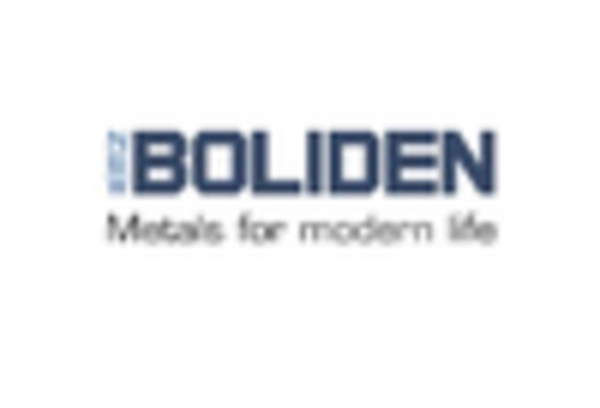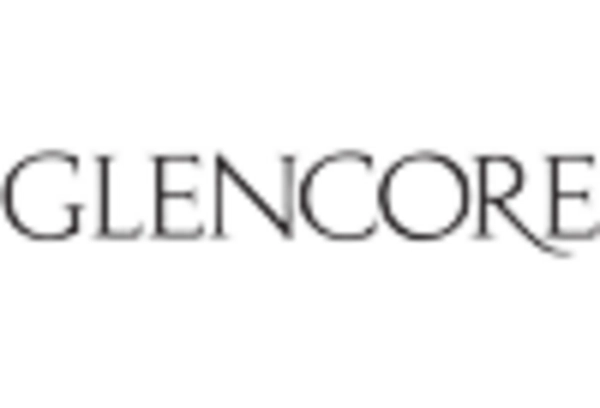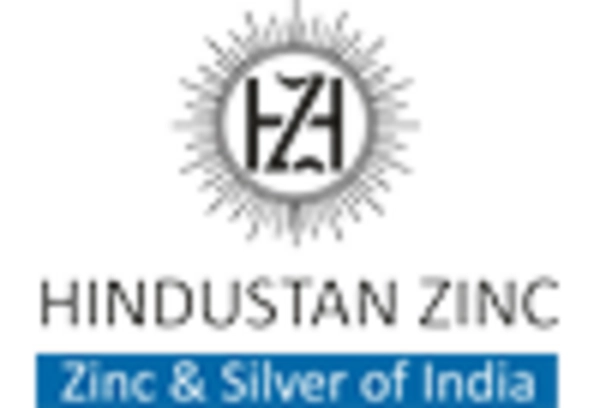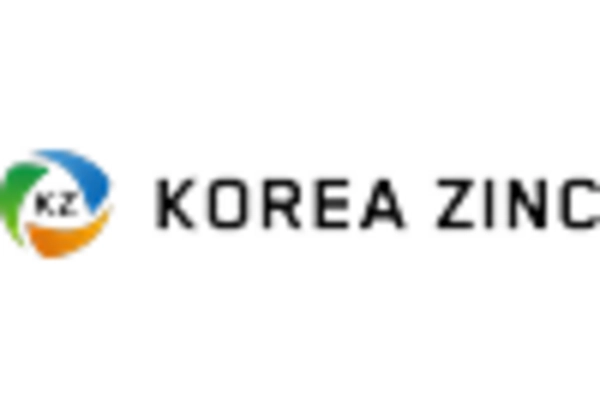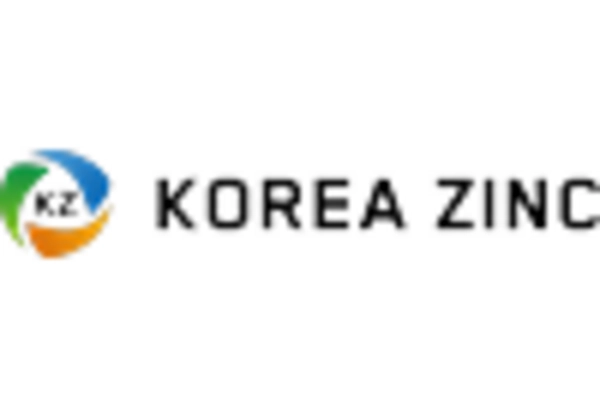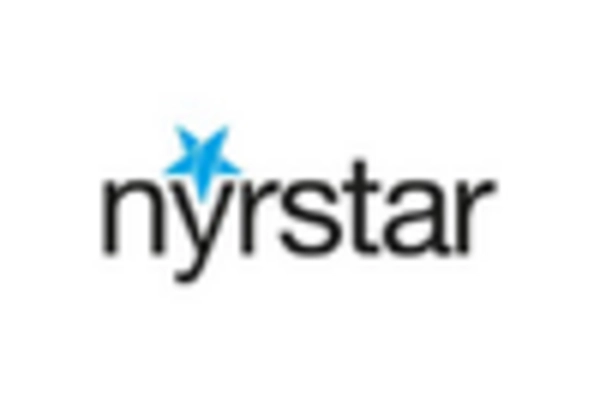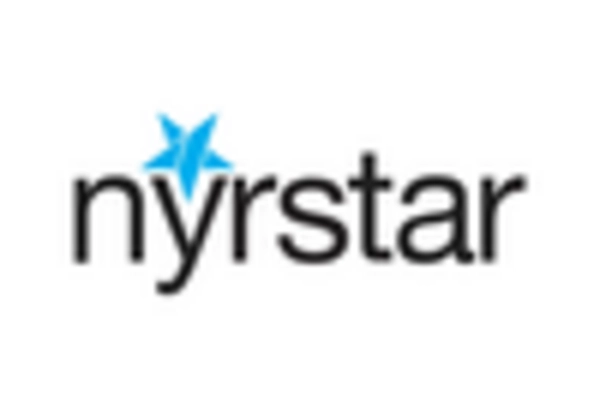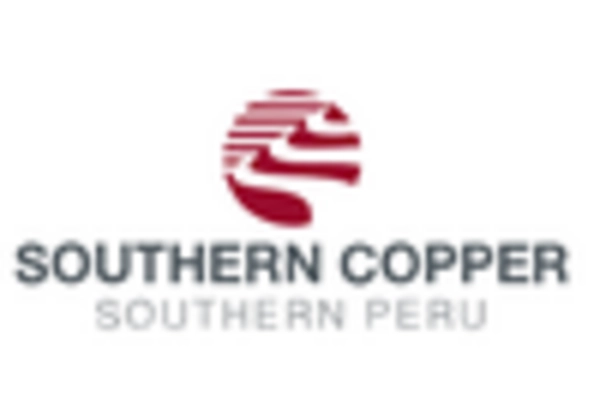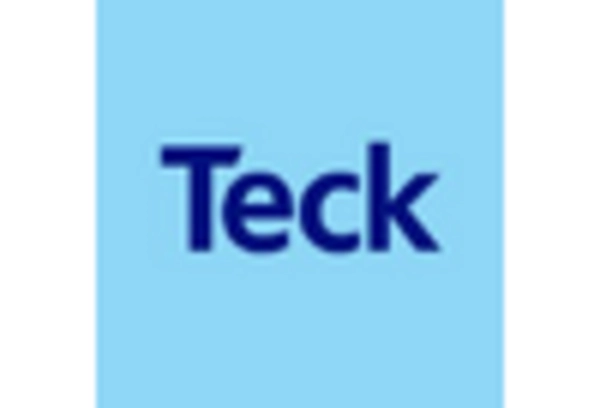Rising Demand for Lead-Acid Batteries
The Lead Smelting And Refining Market is experiencing a surge in demand for lead-acid batteries, primarily due to their extensive use in automotive applications and renewable energy storage systems. As of 2025, the battery segment is expected to account for over 80% of lead consumption, reflecting a robust growth trajectory. This demand is further fueled by the increasing adoption of electric vehicles and the need for efficient energy storage solutions. Consequently, lead smelting and refining operations are likely to expand to meet this growing need, thereby enhancing the overall market dynamics. The industry's ability to adapt to this demand will be crucial for its sustained growth.
Increasing Recycling Rates of Lead Materials
The Lead Smelting And Refining Market is witnessing a notable increase in the recycling of lead materials, driven by both economic and environmental factors. Recycling lead from used batteries and other sources is not only cost-effective but also reduces the need for primary lead extraction, which can be environmentally damaging. As of 2025, recycled lead is expected to constitute a significant portion of the total lead supply, potentially exceeding 50%. This shift towards recycling is likely to reshape the market landscape, as companies that prioritize sustainable practices may find themselves better positioned in a market that increasingly values environmental responsibility.
Technological Innovations in Smelting Processes
Technological advancements are playing a pivotal role in shaping the Lead Smelting And Refining Market. Innovations such as the development of more efficient smelting techniques and the integration of automation are enhancing productivity and reducing operational costs. For instance, the introduction of oxygen-enriched air in the smelting process has been shown to improve lead recovery rates significantly. As companies adopt these technologies, they not only increase their output but also minimize waste and emissions, aligning with environmental standards. This trend suggests that firms investing in technology may experience improved profitability and market share in the coming years.
Regulatory Compliance and Environmental Standards
The Lead Smelting And Refining Market is increasingly influenced by stringent regulatory frameworks aimed at reducing environmental impact. Governments are implementing regulations that mandate the reduction of lead emissions and the adoption of cleaner technologies. This has led to a shift in operational practices within the industry, compelling companies to invest in advanced filtration and recycling systems. As of 2025, the market is projected to grow at a compound annual growth rate of approximately 4.5%, driven by these compliance requirements. Companies that proactively adapt to these regulations may gain a competitive edge, as they can market themselves as environmentally responsible, potentially attracting a broader customer base.
Expanding Applications of Lead in Emerging Technologies
The Lead Smelting And Refining Market is experiencing growth due to the expanding applications of lead in emerging technologies. Lead is being utilized in various sectors, including radiation shielding, electronics, and specialized glass manufacturing. As industries continue to innovate, the demand for lead in these applications is expected to rise. For instance, the electronics sector is increasingly incorporating lead in soldering materials, which is projected to grow as technology advances. This diversification of lead applications may provide new opportunities for market players, suggesting that the industry could see a shift in focus towards these emerging sectors in the near future.


